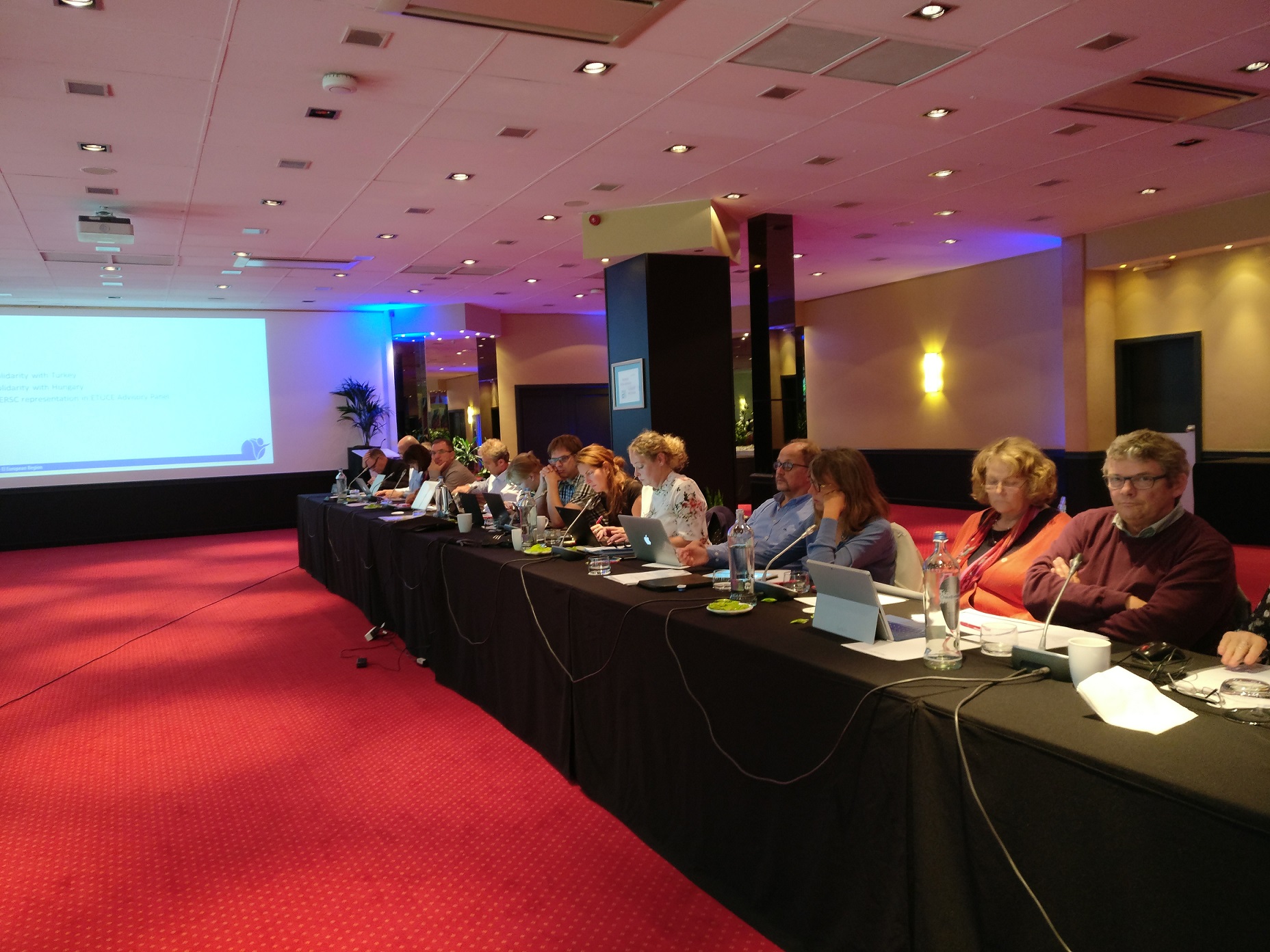Higher Education and Research trade unions call for reduced casualisation in the sector
Published:
Enhancement of the status and recognition of teaching in higher education, as well as the role of Higher Education and Research in supporting refugees and migrants and promoting democratic citizenship were at the centre of discussion at the meeting of the ETUCE Higher Education and Research Standing Committee (HERSC). The biannual meeting took place in Brussels on 11-12 September and was attended by more than 30 delegates representing 23 European countries.
The presentation by the European University Association (EUA) provided the basis for the discussion on institutional strategies to enhance the status and recognition of teaching in higher education. Education trade unions underlined several challenges in supporting teachers and researchers at the university level as laws and regulations are not very well implemented in many European countries.
HERSC members also had the opportunity to share their experience of trade union actions on supporting the integration of refugees and migrants in higher education and research and challenging extremism and promoting democracy.
Tackling casualisation and the precarious situation of employees in higher education and research has been a great problem according to the education trade unions. Many countries have experienced reductions in their education budgets since the economic and financial crises, which had negative consequences on the autonomy of universities, the quality of education and research, and increased the number of fixed-term contracts in the sector.
ETUCE member organisations continue fighting for decent contracts, salaries and working conditions for the employees in the sector in the framework of collegial governance and effective social dialogue.